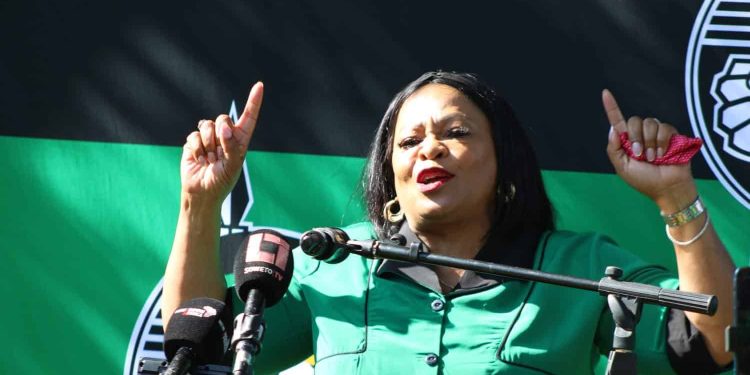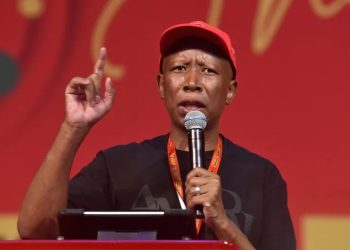The African National Congress (ANC) has acknowledged the growing risk of international sanctions against South Africa or its leaders as diplomatic tensions with the United States escalate. The party insists it is prepared to “pay the price” to defend its sovereignty and principles, even if it means facing economic penalties.
The rift between South Africa and the US has deepened following Washington’s accusations of human rights violations, the cancellation of aid funding, and former President Donald Trump’s executive order targeting the country. The situation worsened after South Africa expelled US ambassador Ebrahim Rasool for his criticism of the Trump administration.
Speaking at the ANC’s National Executive Committee (NEC) meeting in Gauteng, Deputy Secretary-General Nomvula Mokonyane condemned what she called “the resurgence of right-wing ideology” influencing global policies, particularly against Africa. While the ANC urged continued diplomatic engagement, Mokonyane also struck a defiant tone, warning that South Africa must “prepare for any eventuality.”
Mokonyane emphasized that the ANC would not compromise its stance on justice, equality, and anti-imperialism, even if sanctions were imposed. “Throughout our struggle, our leaders have made sacrifices,” she said. “If standing for what is right means facing sanctions, so be it. We will continue to pay the price.”
She pointed to Cuba’s long-standing US sanctions as an example, vowing that South Africa would similarly resist external pressure. “Who are they to lecture us? Just a few years ago, Nelson Mandela was still on their terrorist list,” she added.
The ANC also refused to criticize Rasool’s expulsion, dismissing US objections and stating that “life must go on.”
The NEC reiterated its commitment to solidarity campaigns supporting Western Sahara, Cuba, and Palestine, reinforcing its opposition to what it called “Western imperialism and colonialism.”
International Relations Minister Ronald Lamola, also an ANC NEC member, defended South Africa’s land reform policies, including the controversial Expropriation Act, which has drawn US criticism. “We will not compromise on land justice,” he said, though he noted that trade discussions with the US would continue.
Mokonyane also defended South Africa’s membership in BRICS, a bloc that has drawn US opposition. “BRICS represents a fairer global order, challenging Western-dominated systems,” she declared. “Our role in BRICS and the G20 is about solidarity, equality, and sustainable development.”
With tensions showing no signs of easing, South Africa faces potential economic and diplomatic fallout. The ANC’s unwavering stance suggests a hardening of its anti-Western position, even at the risk of isolation. As the government braces for possible sanctions, the question remains: How far is South Africa willing to go in its defiance?
The international community—and South African citizens—will be watching closely as this high-stakes diplomatic standoff unfolds.






















